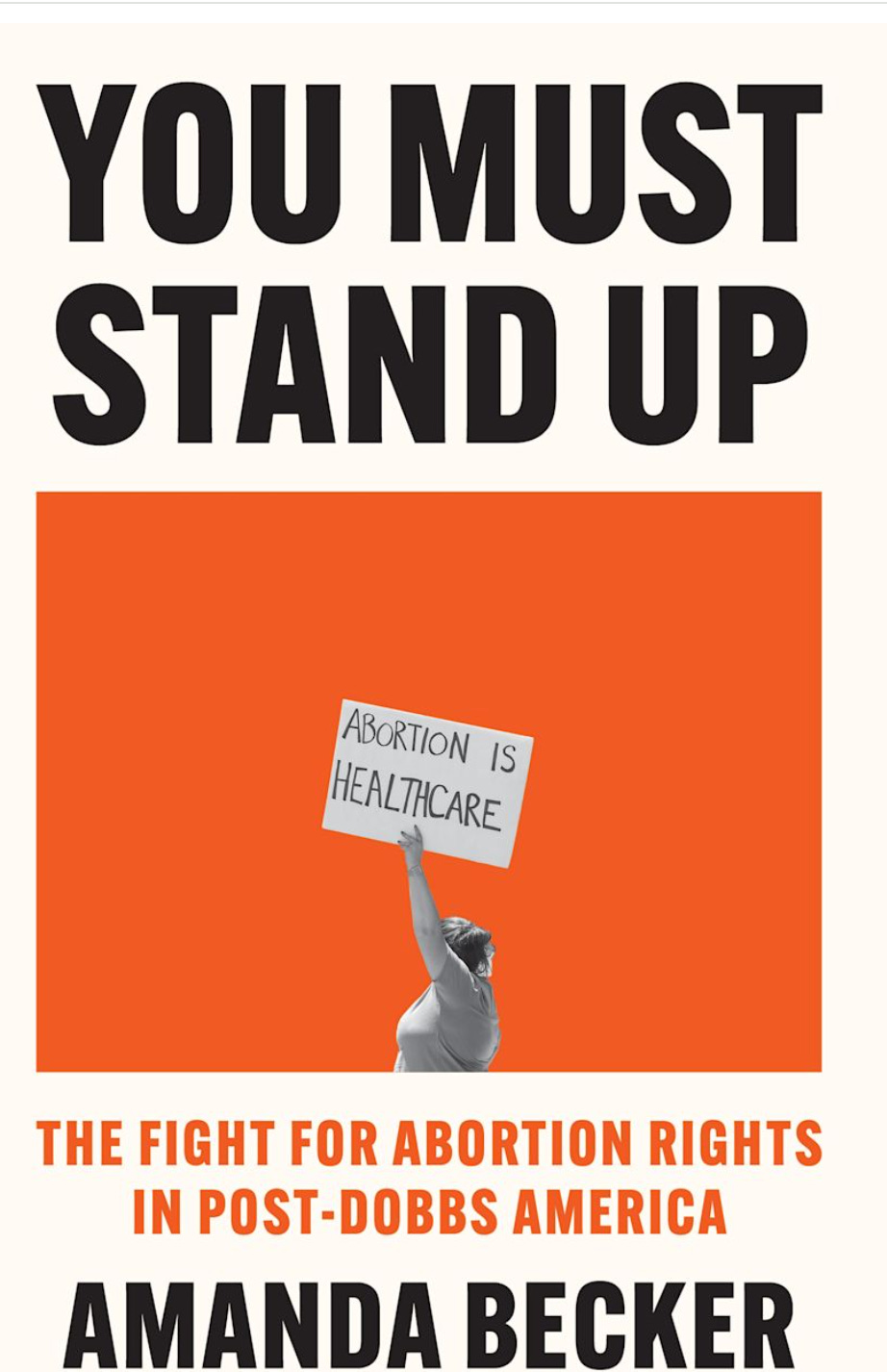Journalist pens work on recent history of abortion rights movement
Amanda Becker has been a longtime observer and reporter of reproductive politics. Her new book explains how things have changed since the Dobbs decision.
A new book chronicles the evolution of abortion laws and politics in the immediate aftermath of the Supreme Court overturning Roe v. Wade.
You Must Stand Up: The Fight for Abortion Rights in Post-Dobbs America, written by journalist Amanda Becker, provides a fascinating depiction of what activists, doctors, and lawyers have dealt with as long-standing precedent was uprooted to create a far more destabilized landscape for reproductive freedom.
“What we're seeing from the abortion rights movement right now is a period of creativity of thought that's bringing in voices and thinkers that previously were not being supported,” Becker said.
Both the author and I agreed that it’s hard to characterize the abortion rights movement as winning the debate right now. Though there have been victories at the ballot box, by and large, access to abortion care has dwindled in more parts of the country than it’s expanded. In some places, like Texas, there is a daunting future where ballot initiatives aren’t possible. The movement is still in its burgeoning phase.
One of the things I’ve seen and that Becker discussed was the disagreements between grassroots activists and national leaders in New York. Many of the women in states like Alabama, Mississippi, or elsewhere had been telling them for years that there was effectively no abortion access with the Targeted Regulations of Abortion Providers that had hampered providers and made it nearly impossible to comply with.
Becker also discussed the divisions in the antiabortion movement over exceptions. Some purists wanted a total ban, even in cases of rape, incest, and the health of the mother. Many political operatives know that abortion, without exceptions, is a hard sell in elections.
“They're kind of on a collision course with kind of the most conservative wing of the anti-abortion movement, or the most reactionary or the most anti-abortion who want fetal personhood across the board, with no exceptions,” Becker said. “And that's creating a headache right now for leaders in the anti-abortion movement at some of the more mainstream organizations.”
One of the parts of the book that I found insightful was the amount of space given to the importance of doctors within the movement. The book's title comes from an Arizona doctor who said people must stand up for abortion rights.
“They're realizing that they're not going to be able to fulfill the commitment they've made as physicians to take care of their patients if laws are passed that prevent them from doing that,” Becker said.
Abortions later in pregnancy were also covered in the book. Because many women must go to other states to get abortion care, they often are in later stages or trimesters. It takes a while to get the resources together to travel to another state. They must take time off work for a multi-day procedure, which means they must pay for lodging and childcare.
“All of those things are pushing abortions later into pregnancy,” Becker said.
In her book, Becker discusses the intransigence at the federal level. With the virtual deadlock over the issue, any bills are unlikely to get through Congress. She discusses the prospect of a Constitutional Convention and passing a new amendment. She compares it to Prohibition, when alcohol was banned in an amendment that was later repealed by another amendment.
“It would take either getting our systems back to a point where they represent the people or changing the systems to better work in a 2024 environment than when they were first conceived,” Becker said. “And I don't rule out either of those two things happening.”




